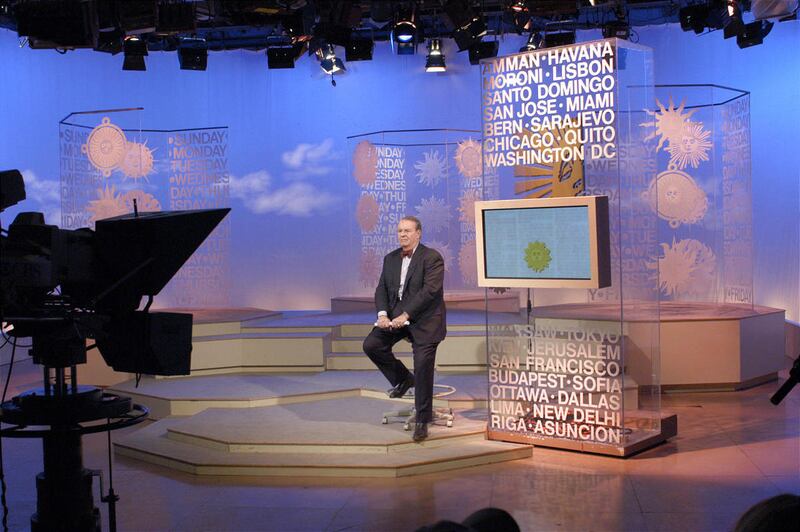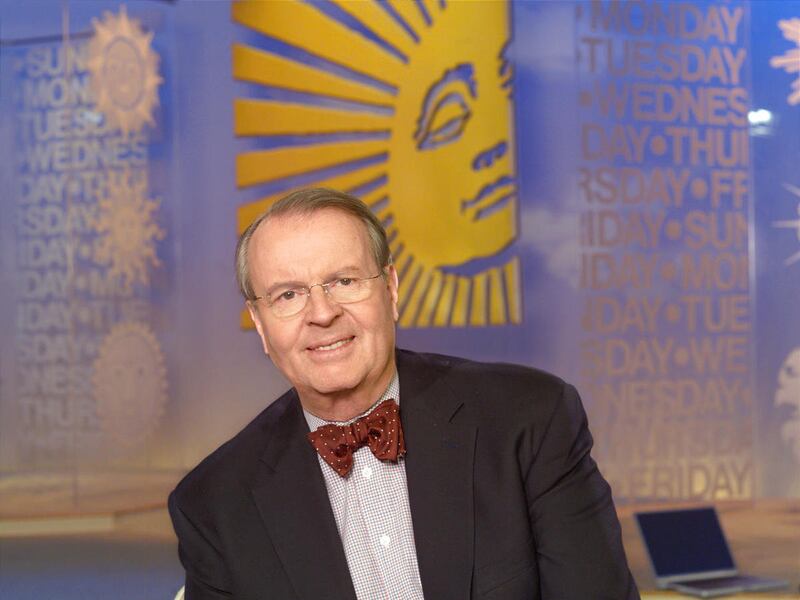NEW YORK — Orrin Hatch points to a time when things were worse.
The year was 1856. South Carolina Congressman Preston Smith Brooks became so infuriated with a speech by Senator Charles Sumner that he beat him severely with a heavy walking cane. A newspaper at the time praised the act. Civility in American politics had seemingly reached an all time low.
These days, senators aren't whacking each other with canes, but they're not really talking to each other either. Just weeks ago an inability to compromise on the federal budget nearly lead to a government shutdown. And it's not just politics, says Robert L. Dilenschneider. "We see in politics, in the media, in business, on Wall Street, a level of incivility that is incredible," he says. What's at stake, Dilenschneider and other say, is the ability of a democracy to function and move forward despite strong differences of opinion.
To that end, Dilenschneider, who is the president of a strategic communications and PR firm, has partnered with the Carnegie Council for Ethics in International Affairs to present a series of lectures on civility. Hatch (R-Utah) was set to be the first speaker of the series on April 11, but ironically had to reschedule his speech on "Civility in Politics" because of the threatened government shutdown.
Instead, the "Civility in America Lecture Series" kicks off today with Charles Osgood, the anchor of CBS News Sunday Morning and radio's The Ossgood File, who will speak on civility in the media.
"We've always had polarization and sharply divided opinions. But it does seem we are experiencing an moment in public life where there is a lot of concern about civility and how we treat others," said Joel H. Rosenthal, president of the Carnegie Council.
So they contacted Osgood. "They recognized me as a pro-civility sort of a guy," Osgood said. "There is something different about our approach, which does not involve as much yelling and screaming as you often find in the coverage of the news these days."
Where and when the current civility crisis began depends upon whom you ask. Osgood thinks that Watergate may partially be to blame — at least as far as the media are concerned. "A whole generation of people got into journalism because they just loved the idea of being able to bring somebody down like Richard Nixon was brought down," he said. "I think, however, that you can do very good journalism without that as your objective. I don't think you need your fangs bared or your claws unsheathed in order to do a useful exploration of some topic."
Hatch thinks that the media does focus on things that divide us. "Civility is not dead in Washington, but its practitioners are not as numerous as they once were," he said. "Washington is a much more partisan place today than it once was."
Charles Randall Paul thinks that power, not differences, are at the root of the problem. Paul is the founder of the www.fidweb.org Foundation for Interreligious Diplomacy, a group that brings people together from different — and irreconcilable — religious traditions for dialogue and growth. "If you have to give up civility to get your good legislation passed to help the poor or whatever, you will do it. You want to be able to fight the bad guys with bad press. Calling people names in American works."
Osgood sees the same thing: "If there is demonization going on one side, it will be met with demonization on the other."
Some politicians have called for a change. President Obama spoke at www.whitehouse.gov/the-press-office/2011/01/12/remarks-president-barack-obama-memorial-service-victims-shooting-tucson a memorial service for the victims of a shooting in Tucson back in January: "But at a time when our discourse has become so sharply polarized—at a time when we are far too eager to lay the blame for all that ails the world at the feet of those who happen to think differently than we do—it's important for us to pause for a moment and make sure that we're talking with each other in a way that heals, not in a way that wounds. … Rather than pointing fingers or assigning blame, let's use this occasion to expand our moral imaginations, to listen to each other more carefully, to sharpen our instincts for empathy and remind ourselves of all the ways that our hopes and dreams are bound together."
Politicians say we need a more gentle approach and that we need to talk like grownups. "We keep saying that, but in fact we don't do it," Osgood said.
Lane Beattie, president and CEO of the Salt Lake Chamber and former president of Utah's state senate, points to Ronald Reagan as someone who got it. "One of the reasons Ronald Reagan was so loved was because of his demeanor, his civility. He could speak strongly, but was always willing to hold out the olive branch and willing to look at things that were different. It is ironic that today, some of the very groups that admire him the most, want to forget about some of his greatest accomplishments that came from him not allowing emotions to drive issues."
Not everybody, however wants to get it. New York Times columnist Paul Krugman's krugman.blogs.nytimes.com/2011/04/16/civility-is-the-last-refuge-of-scoundrels/ recent column was aptly titled "Civility is the Last Refuge of Scoundrels." Looking at recent disagreements over the budget between Democrats and Republicans, he said, "What are we supposed to have a civil discussion about? The truth is that the two parties have both utterly different goals and utterly different views about how the world works."
But Osgood remembers two political rivals that proved civility can work: www.dirksencenter.org/ Senator Everett McKinley Dirksen and President Lyndon B. Johnson. Dirksen, a Republican who died in 1969 served in the U.S. Senate from 1951 to 1969, including as Minority Leader from 1959 until 1969. Johnson was a Democrat who became President of the United States after Kennedy's assassination, but earlier was the Majority Leader in the Senate.
"They worked together all the time," Osgood said. "At end of every single day of legislation, in which they disagreed about almost everything, those guys met together and they had a drink."
Paul said this sort of relationship is possible today. "Not every opponent is an enemy. Just think that would mean to you if you really believed that."
But this doesn't mean you have to agree with each other. In fact, Paul, after seeing years of productive dialogue between people who think each other are going to hell, doesn't think civility or even friendship are dependent on agreeing on vital issues. It isn't about compromise. "Why can't just get along? Because we shouldn't just get along. We should be arguing all the time. The question is 'How should we engage in our arguments?' Until you get it that way, all this civility stuff will be vacuous air. It is going to be blah, blah, blah and people saying 'Let's just get along.' It's not just about how we get along, it is about how we fight. It is how we fight with honor, with respect and love for our opponent. That is what civility is."
EMAIL: mdegroote@desnews.com
TWITTER: twitter.com/degroote
See the show
Civility in America
Lecture Series
Today: Charles Osgood: Civility in the Media
May 23: Common Good Founder Philip K. Howard: Personal Accountability
June 20: Economist and Author Henry Kaufman: Civility on Wall Street
TBA: Sen. Orrin Hatch: Civility in Politics
Live webcast today of Osgood's lecture at approximately 3:45 p.m. MDT at www.carnegiecouncil.org/live.The event will also be available later on www.youtube.com/carnegiecouncil and CarnegieiTunes.org on iTunes.Heady goes here
Text



